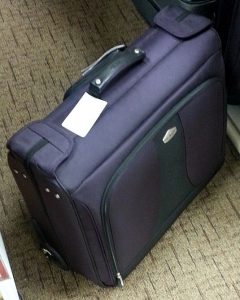Over the last 5 years, there have been a lot of people who have decided to work for themselves. Luckily a few have succeeded, but the rate of attrition is over 95% for those who didn’t make it 5 years. Self employment can be enjoyable, but it can also be hard. Like everything else, there are some things you should know about it before you start and once you’ve started. Here are 5 of those things.

1. No matter what you’re good at, unless you already have clients willing to work with you your biggest issue isn’t going to be skill or product quality but marketing. This takes place before selling because you have to get the attention of those who could possibly hire you to work with them.
Luckily there are many articles online and local classes in every major city that you can take, some of them for free. However, knowing how to do it is a lot easier than actually doing it. This more than anything else will determine your long term success.
2. The first thing you “shouldn’t” do is buy a lot of office supplies. That’s the tendency for a lot of people because when they were working other jobs there was always a lot of things such as pens and paper around. Most self employed people find that they buy a lot of these things and, if they last in business, will still have a lot of it hanging around 10 years later. Only buy the essentials when you start and determine what you might need as things move along. Buy pens though; there’s never enough pens when you need one.
3. You can’t do it all on your own. Okay maybe you can, but some things you should really think about letting someone else do for you. Paying an accountant to help you get started and to do your taxes makes a lot more sense than doing them on your own. Services such as cutting your lawn and snow removal are partially tax deductible. If you can afford it, hiring someone to come in and do some minor cleaning for you might alleviate some stress to do it all. Did we mention the tax write-offs?
4. Figure out how you’re going to track both all of your expenses and mileage. There are many apps that can help if you have a smartphone but many of them are going to cost you a little bit of money and it’s a monthly fee rather than a one-off charge. Smartphones, schedulers, even your receipts from having to buy supplies can help you figure out where you’ve been. Keeping a notebook or a calendar or even using an app like Evernote (which is free) can help you out. Also, buy a binder of some kind to stuff all those receipts in unless you want to take pictures of all your receipts and save those files somewhere.
5. Try to never spend a lot of your money up front unless you know the equipment you’re using and that you absolutely need it to progress. This is where a lot of people hurt themselves initially, spending money while not bringing in any money and feeling an immediate monetary crunch. Stress is a horrible way to get a business going but there’s no getting around that. Adding money to the stress will make you burn out quicker.